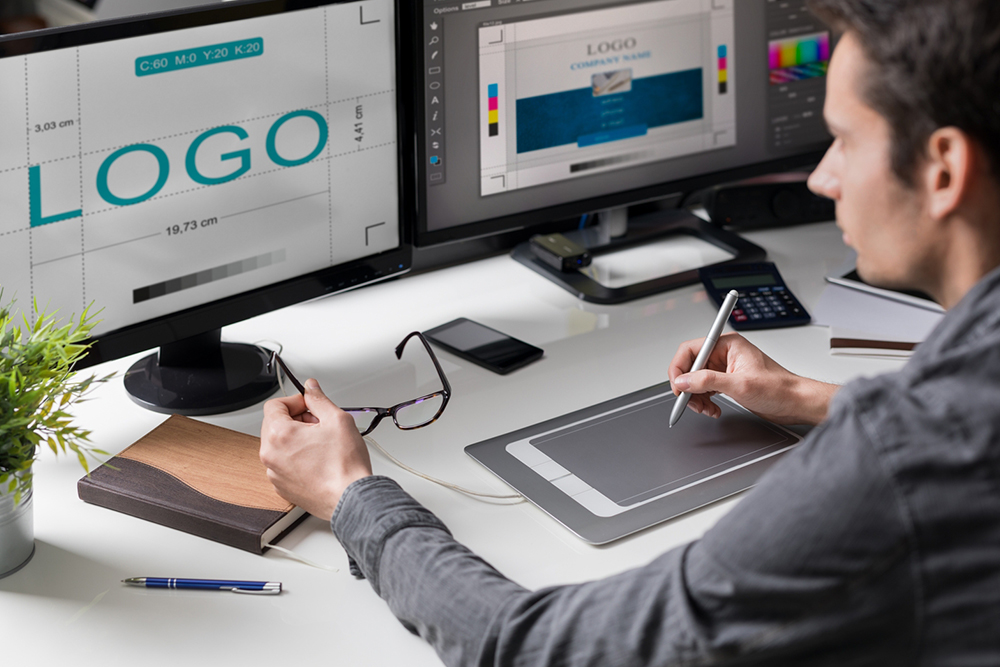10 Graphic Design Fields to Consider
Graphic design is a sought-after skill that can open many doors for one. That said, to master it, taking up relevant courses, either in-person at universities or online, can help. Enrolling in these programs allows one to discover design fundamentals, explore job roles in the field, and perfect their skills. If considering studying graphic design, it is important to understand the available fields of study or specializations and the skills each one requires.
1. Brand design
One of the most common graphic design types is brand design. It focuses on creating a visual identity for a company, brand, or product.

2. Web design
This type of graphic design is quite popular today. Web design combines the traditional principles of composition and form with modern technology to create online platforms. Whether one chooses to learn web design through online courses or in person at a university, enrolling in a reputable program could help one explore the latest technology used by professional designers and acquire the practical skills required to excel in the field.
3. Advertising design
An advertising graphic designer works on visual communication to promote and sell a service or product. They help create website banner ads, print ads, billboards in magazines or newspapers, and TV commercials. Most organizations use the services of advertising designers to establish their brand identity and/or attract customers.
4. Marketing design
While studying this form of graphic design, one will learn how to create visual materials to promote services, products, or the brand. Marketing design products may include various things, from packaging and ads to social media content and websites. A marketing designer would be well-versed in typography, color, and other design elements to grab the viewer’s attention and communicate key messages. Although marketing design is similar to brand design, the former focuses on marketing products and services instead of shaping the brand and its identity.
5. UI and interactive design
User interface (UI) and interactive design are among the most valued graphic design skills today, so several courses cover this specialization. Studying this type of graphic design can help one learn how to bridge the gap between complex computing and the user experience through visually pleasing forms and layouts. Here, one will work on creating menus, buttons, and other elements on a website or application with which users interact. Additionally, this type of graphic design could involve more complex tasks like designing complete website layouts or interactive applications.
6. 3D graphic design
This specialization involves the use of 3D modeling software to create images or animations. The results could be displayed on a 2D surface, including a computer screen, or in a three-dimensional space like a virtual reality environment. Those who study 3D graphic design can find diverse job profiles, from healthcare imaging to architectural visualization. While the fundamentals here are similar to regular 2D graphic design concepts, this specialization involves more complexity in design. For instance, a program in the field may cover concepts like how the light interacts with the surfaces of the models and how viewers experience the animated or image output.
7. Typography design
Arranging typefaces, characters, and words on a page are some of the skills one would learn in a typography design course or program. Traditionally, typographers were responsible for picking the right typefaces and arranging them in a visually pleasing way. Today, in the digital age, a typography designer has access to a vast number of fonts and typefaces, so they have to use their knowledge and skills to choose the right font for their projects. The font here needs to be legible and easy to read.
8. Vehicle wrap and decal design
This type involves creating custom graphics, which are meant to be printed on large sheets of vinyl that go over vehicles. The vinyl sheets also have to be cut to fit the contours of the vehicles and heat-pressed to adhere to the surfaces. The wrap and decals here could be used for promotional purposes, including displaying a company logo, advertising a new product, or adding personality to a plain vehicle.
9. Motion graphic design
This subset of graphic design focuses on the creation of visual elements for television, digital media, and film. So, a motion graphic designer uses a variety of software programs to create 2D and 3D animations, including title commercials, sequences, and music videos. The field is constantly evolving, with new software and formats being added to the mix regularly. This means a motion graphic designer must keep up with the latest trends, such as mixing 2D and 3D, kinetic typography, or morphing.
10. Packaging design
If planning to study graphic design, one could consider specializing in packaging design, which involves the creation of unique product packages that are functional and visually appealing. The graphic designer here will need to consider things like the size and shape of the package, suitable materials, and the right decorating and printing methods. Well-designed packages protect the product and make it easy for customers to identify and access it. That’s why packaging design plays a crucial role in the success of any packaged product.

